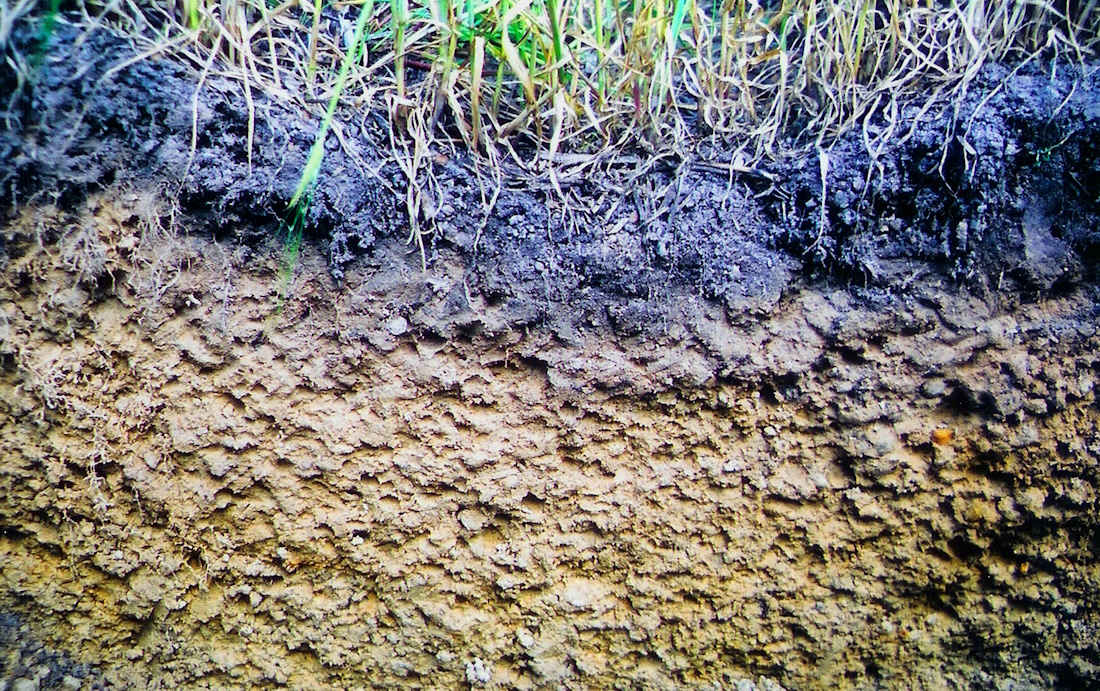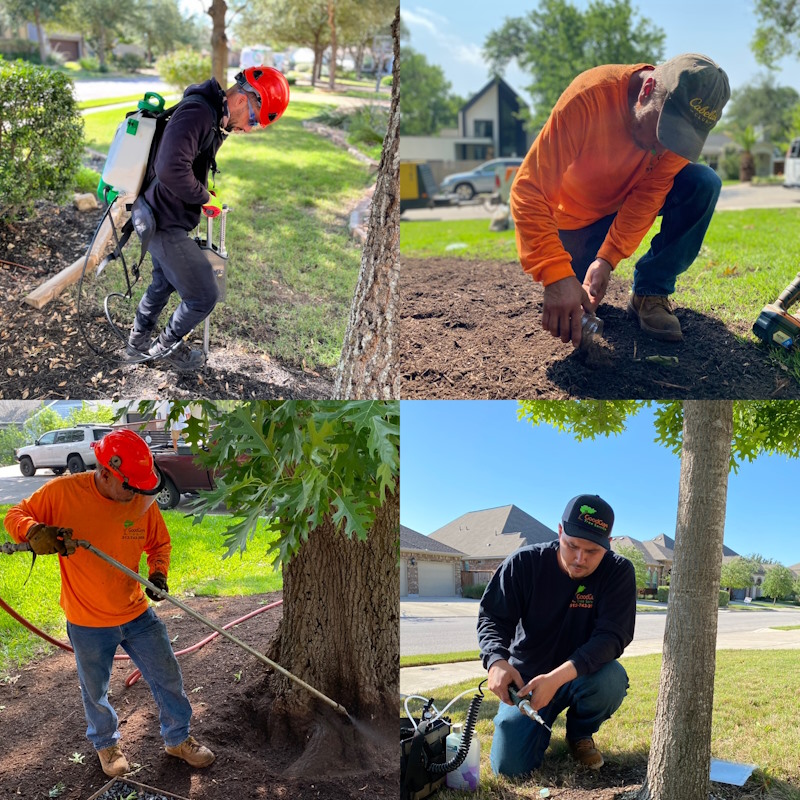Here in central Texas, it’s important to water our trees throughout the seasons, especially during summer droughts. Regular watering ensures our trees get enough nutrients to remain strong and healthy, while encouraging vigorous growth throughout the season.
However, when watering your tree, you might notice that the water runs off the soil rather than soaking deep into the ground. The water runoff is caused by soil compaction, a common issue affecting countless trees throughout central Texas.
If your trees are suffering from compacted soil, they struggle to get enough air, water, and nutrients. This causes all sorts of problems, from poor growth and root development to encouraging fungal growth like oak wilt!
What is Soil Compaction?
Soil compaction is when there is a lack of porous spaces in the soil where a tree is planted.
Compaction occurs when the soil is continually pressed together over time, usually by things like foot traffic or lawn mowers. It’s an issue affecting trees throughout Texas, from backyards to urban landscaping.
As result of the compaction, soil becomes much denser and lacks the porosity needed for air, water, and optimal root growth.
How Soil Compaction Affects Trees
Compacted soil causes many issues for trees for all types of trees.
One major problem caused by soil compaction is water runoff.
Because the soil is so densely packed and lacks porosity, water struggles to properly penetrate the soil. Trees with compacted soil struggle to gain enough water needed for healthy growth and root development.
Similarly, soil compaction makes it difficult for oxygen to reach the tree roots.
Trees require oxygen for root respiration, a process where roots convert glucose gathered by leaves into energy. Without root respiration, trees cannot create enough energy they need to thrive.
Another big problem of soil compaction is that there isn’t enough space for root growth. The soil is too tightly compacted, meaning the roots lack space needed to further develop. With little space for roots to grow, a tree with compacted soil will likely see a lot less vigorous growth.
So, soil compaction leads to various problems for long-term tree health. It’s important to act fast to address the problem to ensure that you minimize the damaging effects of compact soil around your trees!
How to Treat Trees with Compacted Soil
As mentioned above, trees with compacted soil face a whole host of problems, especially if left untreated. Thankfully, fixing soil compaction is easy enough.
One method to fix minor soil compaction is to break up the compacted area with shovel, then add a few inches of organic matter like compost. Mix everything together, then continue to water regularly over the weeks, and the soil structure should improve.
For more significant soil compaction, consider investing in a professional treatment such as deep root fertilization. We highly recommend deep root fertilization for compacted soil because the process involves drilling several holes into the tightly packed soil.
Not only does this help aerate the compacted area, but also provides an instant boost of nutrients, which can help reverse the negative impact of the compacted soil.
Is soil compaction causing problems for your trees in central Texas? Then contact Good Guys Tree Service for a professional deep root fertilization treatment! Our processes remove unwanted soil compaction, while giving your trees an instant boost of nutritional goodness.







